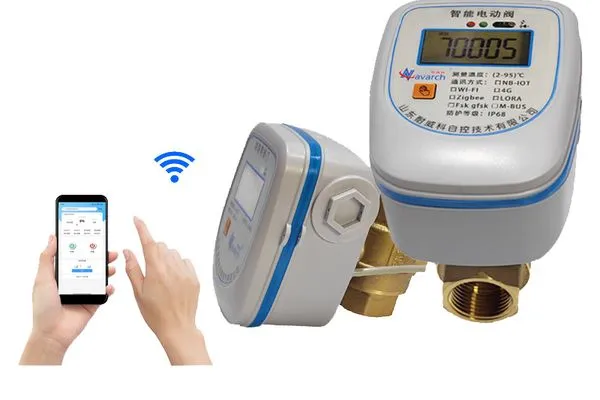Avoid your inquiry is delay response, please enter your WhatsApp/WeChat/Skype along with the message, so we can contact you at the very first time
We will reply you within 24 hours. If for urgent case, please add WhatsApp: +8613188899036, or WeChat: 0531-87968777. Or call 0531-87968777 directly.
* We respect your confidentiality and all information are protected. We will only use your information to respond to your inquiry and will never send unsolicited emails or promotional messages.
Smart valves are changing the way we control and manage fluid and gas flow, offering greater precision and automation. But how do they work, and are they worth considering for your system?
A smart valve integrates sensors, digital control, and communication features to regulate fluid or gas flow more efficiently, often in response to real-time data.

smart valves
Unlike traditional valves, which simply open or close, smart valves can adjust flow, pressure, or temperature automatically based on the data they receive. This allows for optimized performance and energy savings. With their growing use in industries like HVAC, water systems, and automotive engineering, smart valves are making systems more efficient, reliable, and easier to control.
Smart water valves are becoming increasingly popular in residential and commercial applications. But are they truly worth the investment?
Smart water valves offer greater control over water usage, can help prevent leaks, and are often more energy-efficient, but the benefits depend on the system and usage needs.
One of the biggest advantages of smart water valves is their ability to detect leaks and irregularities in water flow. This can save homeowners and businesses significant amounts on water bills and prevent costly water damage. Smart valves can also be controlled remotely through mobile apps, offering convenience and flexibility.
In commercial or industrial settings, smart water valves help ensure optimal water distribution, reducing waste and improving system performance. However, the upfront cost may be higher than traditional valves, so the benefits need to be weighed against your specific needs.
For systems that require frequent adjustments or monitoring, or where water conservation is a priority, investing in a smart water valve can be worth it. However, for simple, low-traffic applications, traditional valves may suffice.
Smart valves come in various types, each designed to serve specific purposes. But what are the main types, and how do they differ?
The main types of smart valves2 include electric, hydraulic, and pneumatic valves, with electric valves being the most common in residential and commercial applications.
Smart valves typically operate on electric, hydraulic, or pneumatic systems. Electric valves are widely used in HVAC, water systems, and industrial applications, where precise control is required. These valves can adjust flow based on signals from control systems or sensors. Hydraulic valves use pressure to control flow in systems that rely on fluid power, such as heavy machinery. Pneumatic valves use compressed air to control flow, often in applications requiring rapid actuation.
Each type of valve has its strengths, and the choice largely depends on the system and performance requirements.
Choosing the right type of smart valve depends on the specific needs of your system, such as speed, precision, and the environment in which it will operate.
Valves come in many different forms, but the three main types are typically classified by their function. These are: ball valves, gate valves, and globe valves.
Ball, gate, and globe valves are the three most commonly used valve types, each suited for different applications based on the fluid control needs.
| Valve Type | Main Function | Ideal Use Case | Advantages |
|---|---|---|---|
| Ball Valve | On/off control | Quick shut-off applications | Quick and reliable action |
| Gate Valve | Full flow control | Water pipelines, large systems | Ideal for on/off applications |
| Globe Valve | Flow regulation | Systems requiring precise control | Accurate and adjustable flow |
Each valve type serves a specific purpose in fluid and gas systems, with varying advantages and applications depending on the need.
Smart water valves are an advanced type of valve that offers enhanced features for controlling water flow. But what sets them apart from regular valves?
Smart water valves integrate sensors and digital controls to optimize water usage, detect leaks, and offer remote control capabilities.
Smart water valves can monitor water pressure, detect leaks, and provide real-time data on water usage. They are especially useful in residential, commercial, and industrial settings where water management is crucial. By connecting to a network or app, smart water valves1 allow users to control and adjust water flow remotely, providing convenience and efficiency.
One of the biggest advantages of smart water valves is their ability to prevent damage caused by leaks. By automatically shutting off the water supply in case of a leak, these valves can save homeowners and businesses from expensive water damage repairs. Additionally, smart valves can help conserve water by regulating flow based on usage patterns, making them ideal for eco-friendly and cost-effective water management.
Smart water valves offer a range of features that make them essential for modern water systems, combining efficiency, convenience, and sustainability.
Smart valves, especially in water systems, provide significant advantages such as leak detection, water conservation, and remote control. Understanding their types and features helps you decide whether they are a good fit for your needs.